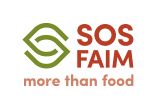
Call for freedom – part 1/2
The project “MUKTI” (meaning freedom) is the combined effort of local government and civil society organisations in the Indian states of Assam, West Bengal, Manipur and Goa to combat human trafficking through providing assistance to the victims and bringing its perpetrators to justice - both in the states of origin as well as in the destinations.
ECPAT Luxembourg is working in India since its first projects. The organization started in 2000 a project to protect and rehabilitate the vulnerable children of the Howrah railway station in Calcutta. Several different projects have been developed since in India, while our strategy was fine-tuned to be targeting more and more the most vulnerable population of children.
Social media gives a unified voice to women suffering from sexual violence and contributes to raise great awareness beyond the borders of India about their fate. But much less is known about the problem of sexual abuse and exploitation of children. Studies suggest that more than 7,200 children, including infants, are raped every year in India ; experts believe that many more cases go unreported. Children are sexually abused by relatives at home, by people in their neighbourhoods, at school, and in residential facilities for orphans and other at-risk children. Most such cases are not reported. Many are mistreated a second time by a criminal justice system that often does not want to hear or believe their accounts, or take serious action against perpetrators.
Let’s concentrate further on Goa as it is a tourist destination for a long time for Occidentals and the present time also for Indians.
Sexual exploitation of children is real and visible in Goa. Unfortunately so many people still look away of crimes committed against the most vulnerable of a society. The reason for this behavior ? Well, is it clearly apparent that cases of child sexual abuse are occurring within Goa by Goans and by tourists coming from all over the world. Goa is an economic flourishing city a huge economic hotspot attracting bundles of migrants. The presumption is that when the children of migrants got sexually abused nobody cares as they are considered as outsiders. So predators find optimal conditions in Goa and seen as ‘cash-draws’ even officials to turn their head the other way. Or that seemed to be the unstated premise for the tacit condoning of tourism-related sexual abuse. So Goa is infamous for child sexual abuse. Over the past decades, Goa became one of the major destination states for trafficking for commercial sexual exploitation of young girls and boys. Minors from different states of India and countries are trafficked to Goa for commercial sexual exploitation.
National legal framework
The Indian Act about protection of children from sexual offences (2012) is an Act to protect children from offences of sexual assault, sexual harassment and pornography. It defines a child as a person under age of 18 years age. The text recognizes several forms of sexual penetration and criminalizes acts of immodesty against children too. The Act is gender-neutral and with respect to pornography, the Act criminalizes even watching or collection of pornographic content involving children. It also provides for various procedural reforms making the tiring process of trial in India considerably easier for children. It was absolutely necessary to review the legal framework as the abolished law was hopelessly deficient in dealing with a range of sexual crimes such as groping and harassment, covered by weak and imprecise provisions.
Communiqué par ECPAT Luxembourg




















